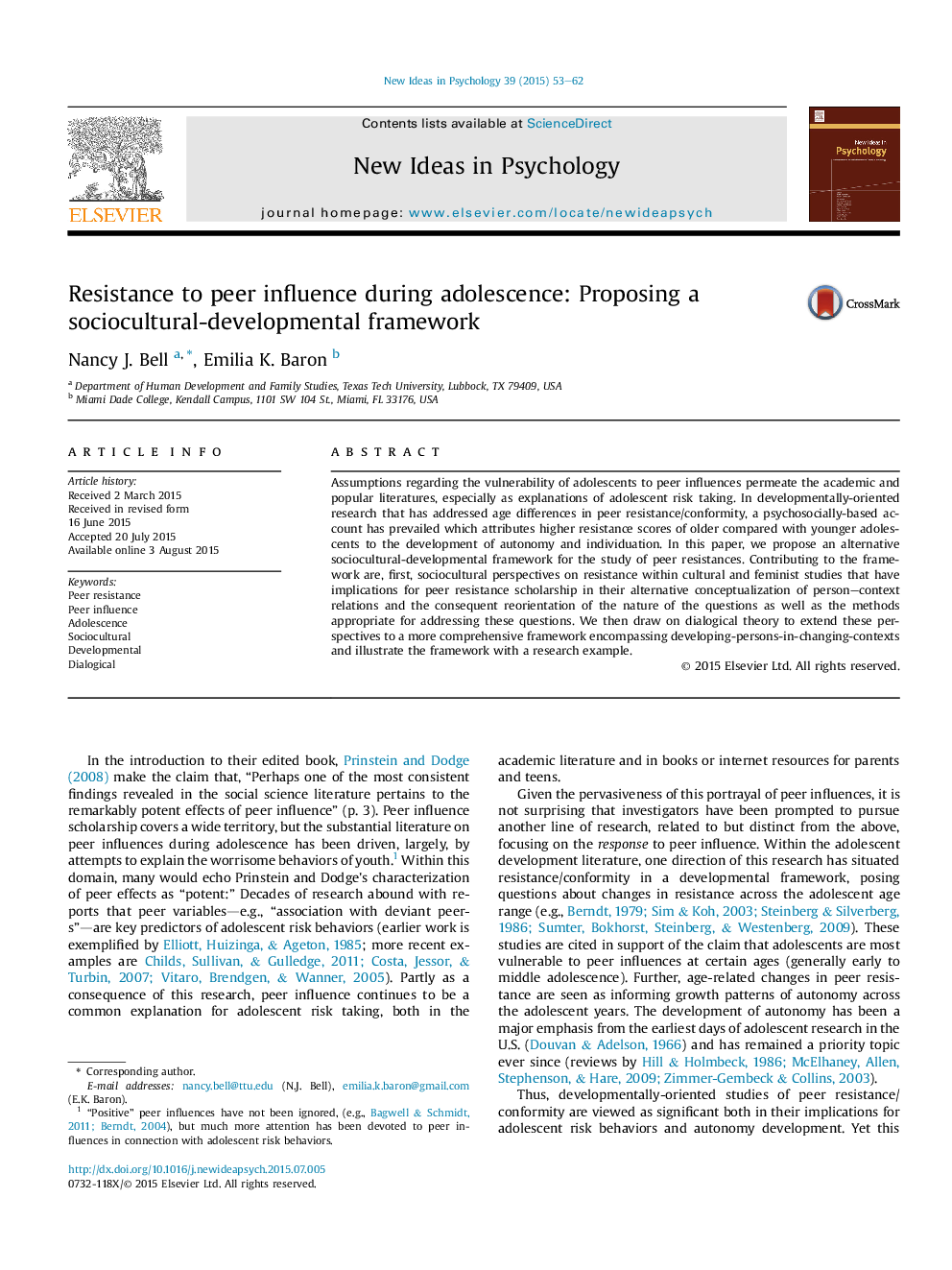| Article ID | Journal | Published Year | Pages | File Type |
|---|---|---|---|---|
| 6811033 | New Ideas in Psychology | 2015 | 10 Pages |
Abstract
Assumptions regarding the vulnerability of adolescents to peer influences permeate the academic and popular literatures, especially as explanations of adolescent risk taking. In developmentally-oriented research that has addressed age differences in peer resistance/conformity, a psychosocially-based account has prevailed which attributes higher resistance scores of older compared with younger adolescents to the development of autonomy and individuation. In this paper, we propose an alternative sociocultural-developmental framework for the study of peer resistances. Contributing to the framework are, first, sociocultural perspectives on resistance within cultural and feminist studies that have implications for peer resistance scholarship in their alternative conceptualization of person-context relations and the consequent reorientation of the nature of the questions as well as the methods appropriate for addressing these questions. We then draw on dialogical theory to extend these perspectives to a more comprehensive framework encompassing developing-persons-in-changing-contexts and illustrate the framework with a research example.
Related Topics
Social Sciences and Humanities
Psychology
Developmental and Educational Psychology
Authors
Nancy J. Bell, Emilia K. Baron,
